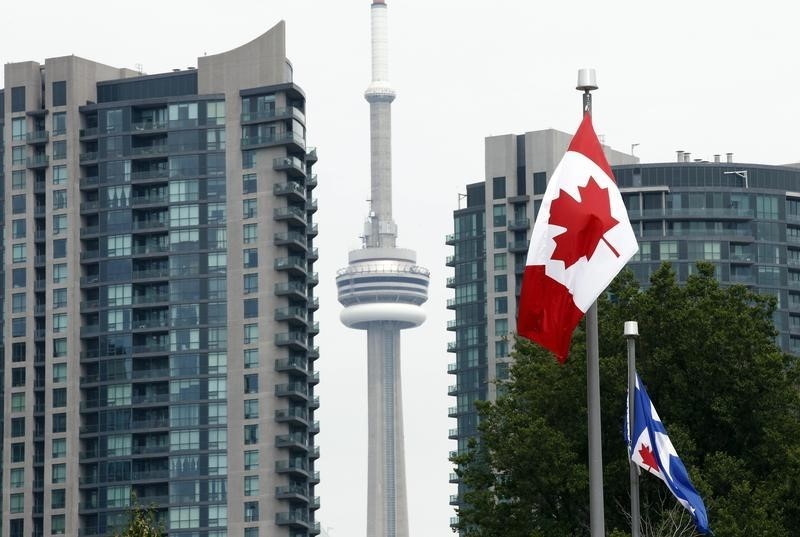By Nia Williams
CALGARY, Alberta, Nov 28 (Reuters) - The government of Alberta, Canada's largest crude-producing province, said on Monday its 2016-17 budget deficit would be marginally narrower than previously forecast amid signs its economy is steadying after more than two years of weak oil prices.
The shortfall is now expected to be C$10.8 billion ($8.1 billion) the province said in a second-quarter fiscal update, slightly less than the C$10.9 billion gap forecast in August.
However, that is still C$449 million higher than the C$10.4 billion deficit originally forecast in the 2016-17 budget released in April.
"While it's too soon to say Alberta's economy turned a corner, there are some hopeful signs that it's stabilizing," Finance Minister Joe Ceci said.
Alberta is home to Canada's vast oil sands and is the No. 1 exporter of crude to the United States. It has been hard hit by the collapse in global crude prices since mid-2014, as producers laid off tens of thousands of oil and gas workers and cut billions in capital spending.
The province's economy is forecast to shrink 2.8 percent in 2016, more than the 1.4 percent estimated in the April budget, due to a massive wildfire in the Fort McMurray region in May that shut down millions of barrels of oil sands production.
The New Democratic Party government expects a recovery to start in 2017 with 2.3 percent growth in gross domestic product, driven by wildfire reconstruction, a rebound in oil production, public sector infrastructure investments and a modest pick up in oil prices.
Alberta is assuming a U.S. crude price of $45 a barrel for 2016, unchanged from its August fiscal update but $3 higher than the April budget forecast.
The government said positive signs for the economy included the addition of 25,000 jobs in the last three months, of which 18,000 were in the mining, oil and gas sector. In addition, manufacturing shipments have increased in recent months, while the value of exports has been rising since April.
Drilling activity in the oil patch is also picking up.
Alberta expects energy investment expected to total C$30 billion in 2016, half of what it was in 2014 when oil prices first started to slump. Capital spending in the energy sector is forecast to remain flat next year.
($1 = 1.3400 Canadian dollars)
